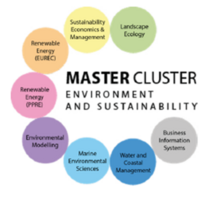Studiengänge
Questions about the study
Contact: InfoLine Studium | +49 (0)441 798-2728 | studium@uol.de | uol.de/dezernat3/infoservice
Studiengänge
Bachelor
In the area of Bachelor's degree programmes, the Environmental Sciences (B.Sc.) and Sustainability Economics (B.Sc.) programmes in particular have a special sustainability orientation.
The professionalisation area offers students the opportunity to acquire individual specialisations and interdisciplinary competences outside their subject area. The professionalisation programme also includes subject areas and modules with explicit sustainability relevance, bringing together students from different disciplines.
Master
Master Cluster "Environment and Sustainability
The Master Cluster "Environment and Sustainability" comprises a broad spectrum of transdisciplinary research programmes in the fields of sustainability, environment and renewable energies. The degree programmes are research- and application-oriented and have a strong international focus. The master cluster is coordinated by the Centre for Environmental and Sustainability Research COAST.
Doctoral programmes
After graduation
Carl von Ossietzky University wants to prepare its students for the professional world in the best possible way. The successes are impressive: 90 % of its graduates are employed after successful graduation (incl. traineeship and doctorate), more than half (55 %) have succeeded in starting a career in less than one month after graduation, a quarter (26 %) within the first three months.3 The university itself offers doctoral programmes, five of which are in the field of sustainability: STEM4 Learning in Informal Spaces (GINT), Environmental Economics and Sustainability Management, Renewable Energy Systems Integration, Environmental Sciences and Biodiversity, and Renewable Energy.

